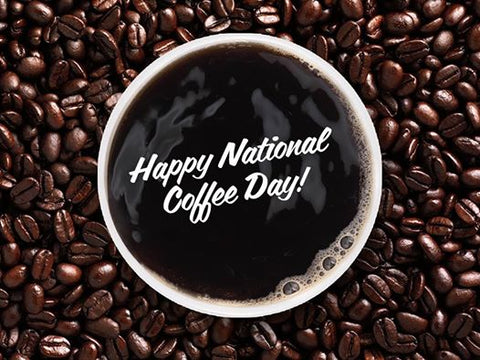Happy National Coffee Day!

The National Coffee Association credits Kaldi, a goatherder, with discovering coffee in the highlands of Ethiopia. It is said that he discovered coffee after noticing that his goats, after eating berries from a certain tree, became so energetic that they did not want to sleep at night.
A local monastery then made a drink with the berries which kept him alert for long hours of evening prayer, and soon the knowledge of the energizing berries began to spread. The consumption of coffee spread across the Arabian peninsula, and eventually across the globe. Today coffee is grown all over the world, but all locations can trace their heritage to the ancient Ethiopian coffee forests.
The Arabs were the first to begin the cultivation of coffee and its trade. By the 16th century, it was known in Persia, Egypt, Syria, and Turkey, and was consumed in homes and many public coffee houses. With thousands of pilgrims traveling to Mecca each year from all over the world, coffee started making its way back to Europe.
Coffee houses soon became centers of social activity, and were known as “penny universities” in England, as for one penny a person could purchase a cup of coffee and engage in stimulating conversation. Tea continued to be the favored drink in the New World, until 1773 when the colonists revolted against the heavy tea taxes, and preferences began to shift to coffee.
As demand continued to spread, so did competition for cultivating coffee outside Arabia. The Dutch finally succeeded in obtaining seedlings, and they were successful on the island of Java. Other countries began to gain access to seedlings, and in just 100 years, coffee became a commodity crop around the world. By the end of the 1700s, coffee had become one of the world’s most profitable export crops.
Fast forward to today, and coffee is a $30 billion industry worldwide. In the US, almost 83% of Americans drink coffee, which amounts to over 500 million cups per day. Happy National Coffee Day!
0 Comments
Add a new comment
